Iran Transferring Heavy Weaponry To Kurdish Regions - Hengaw
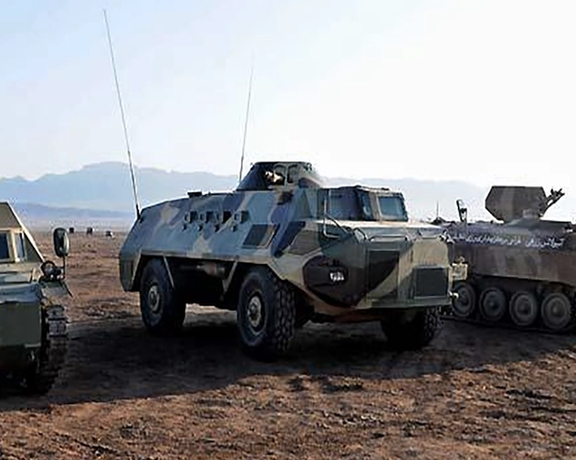
Hengaw Human Rights Organization, a Kurdish rights group, says the Iranian regime is "transferring heavy and semi-heavy weapons" to the Kurdish-majority regions.

Hengaw Human Rights Organization, a Kurdish rights group, says the Iranian regime is "transferring heavy and semi-heavy weapons" to the Kurdish-majority regions.
"The Islamic Republic has completely militarized Kordestan,” said Hengaw in a tweet on Sunday, warning of what it called the "consequences of the military movements of the Islamic Republic in Kordestan province".
According to unofficial reports, the Islamic Republic's deadline for the authorities of the Kurdistan Region of Iraq to disarm the opposition groups of the Islamic Republic is coming to an end and if the Iranian authorities are not satisfied with the actions, there might be a new round of attacks against these groups based in northern Iraq.
In March, Ali Shamkhani, the then Secretary of Iranian Supreme National Security Council, signed a security agreement with Iraq during his trip to the Arab country to end the activities of the opponents of the Islamic Republic in the Kurdistan Region.
Two months before that, Ali Khamenei, the Supreme Leader, in a meeting with the Iraqi Prime Minister Mohammed Shia Al-Sudani in Tehran said "Unfortunately, this is happening in some areas of Iraq, and the only solution is for the central government of Iraq to exercise its authority in those areas as well".
Since October last year, the IRGC has bombed the positions of Kurds opposing the Islamic Republic in the autonomous region of Iraqi Kurdistan on several occasions.
These attacks came as Tehran accused Kurdish opposition groups of inciting nationwide protests in Iran.
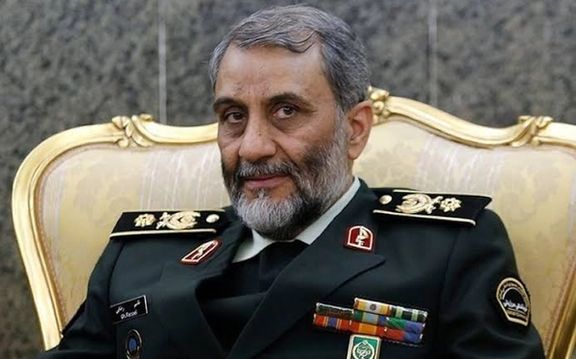
Deputy commander of Iran's Law Enforcement Forces says the Taliban border guards are inexperienced and disorganized and engage in unconventional acts.
Qasem Rezaei said Saturday that before the Taliban came to power, Iran had good communication with Afghan border guards and jointly managed the border.
“Although there were problems, they [Afghans] were responsive. Today, with the Taliban in power, we held meetings with them in Tehran, Kabul and at the borders, but we still we have problems, because the Taliban forces are not accepting any responsibility at the border.”
The Taliban and the Iranian border guards clashed last week in Nimroz. Two Iranian guards and one Taliban fighter were killed after shooting broke out near a border post.
It was not immediately clear what had caused the incident, in which several people were also injured, but it came amid tensions over water rights.
Iran has accused Afghanistan's Taliban of violating a 1973 treaty by restricting the flow of water from the Helmand River to Iran's parched eastern regions, an accusation denied by the Taliban.
In the meetings with their officials, they admit their forces made a mistake and will not repeat it, but sometime later this happens at another place, Rezaie stated.
“Like us, the Taliban seek to establish security at the borders for the movement of travelers and the exchange of goods, but what is happening is due to lack of attention by some Taliban forces at the border.”
The Taliban themselves are upset with the existing conditions on the border and have made sure such issues do not happen again, added Rezaie saying that “it is necessary for Taliban border guards to wear uniforms and adhere to international laws.”
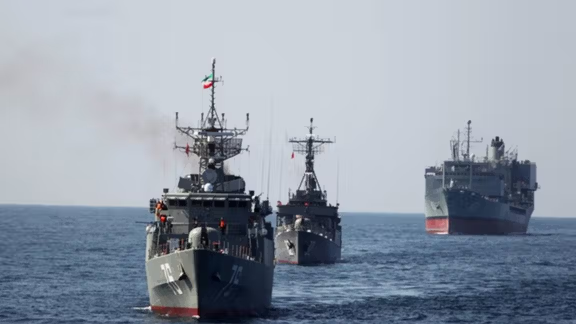
Iran's navy commander said Saturday his country and Saudi Arabia, as well as three other Persian Gulf states, plan to form a naval alliance, including India and Pakistan.
"The countries of the region have today realized that only cooperation with each other brings security to the area," Iranian army's navy commander Shahram Irani was quoted as saying.
Iranian media had mentioned a new naval alliance this week without providing any details. There have been no hints by other regional countries about such a development.
Iran's Revolutionary Guard also has a navy along with the army's maritime force.
However, the United Arab Emirates unexpectedly announced May 31 that it had withdrawn from the US-led 34-nation Combined Maritime Forces coalition, which if true, signals a further weakening of the US position in the Middle East.
The Combined Maritime Forces task force, headquartered at the US naval base in Bahrain, works on security, counterterrorism and counter-piracy in the Red Sea and the Persian Gulf areas. But in fact, the US and Israel were trying to forge a regional coalition to contain Iran, including an air defense network.
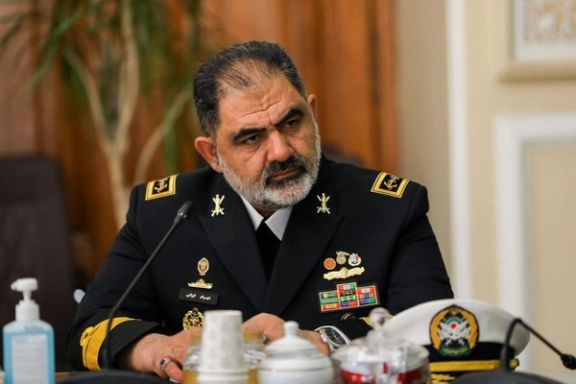
"As a result of our ongoing evaluation of effective security cooperation with all partners, two months ago, the UAE withdrew its participation in the Combined Maritime Forces," the Ministry of Foreign Affairs said in a statement.
However, the US 5th Fleet on June 1 politely refuted the UAE claim and said that the country was still a "partner" in the multinational coalition.
The Iranian navy commander did not elaborate on the shape of the alliance that he said would be formed soon.
Iran has recently been trying to mend its strained ties with several Persian Gulf Arab states.
In March, Saudi Arabia and Iran ended seven years of hostility under a China-mediated deal, stressing the need for regional stability and economic cooperation.
At the time the deal was seen as a shift in Saudi foreign and security policies that for decades has relied on the United States for protection in return for a steady flow of oil at reasonable prices.
Tehran rejoiced the agreement with Riyadh, with officials repeatedly proclaiming a great diplomatic victory against Washington and another step toward their proclaimed goal of “expelling America” from the region.
Naval commander Irani said the states that will take part in the alliance also include the United Arab Emirates (UAE), Bahrain, Qatar, Iraq, Pakistan, and India.
Iranian officials often make exaggerated claims to boost domestic morale and Irani’s claims have to be echoed by regional Arab countries to have any credibility.
The region contains some of the world's most important shipping routes where, since 2019, suspected Iranian attacks began against oil tankers amid tensions with the United States. The Obama, Trump and Biden administrations chose not to retaliate against Iranian naval provocations over the years or show a convincing military deterrent response.
In its latest provocation in May, Iran seized two oil tankers transiting between UAE ports.
Saudi Arabia's rapprochement with Iran has frustrated Israel's efforts to isolate Iran diplomatically.
The UAE, which was the first Persian Gulf Arab country to sign a normalization agreement with Israel in 2020, resumed formal relations with Iran last year.
Bahrain and Morocco later joined the UAE in establishing ties with Israel.
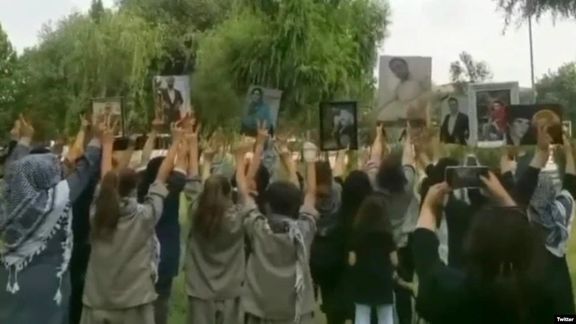
Iranians in the western city of Mahabad held a rally and chanted anti-government slogans to mark the 40th anniversary of the mass execution of 59 youths in the 1`980s.
Videos show security and law enforcement forces surrounded the cemetery of the city an hour before a scheduled ceremony and closed the entrances.
Although the roads to the cemetery were blocked, a group of people gathered near the location holding the pictures of those executed on June 2, 1983. They also carried the photos of those killed during “Woman, Life, Freedom” protests since September 2022.
The protesters chanted slogans like "The Dictator Is Afraid of Us" and "The Martyr Never Dies".
On June 2, 1983, the Iranian regime executed 59 people in the Kurdish-majority city of Mahabad for suspected opposition and based on unknown charges.
Since the establishment of Islamic republic, the regime has mounted massive military, economic, cultural, social and psychological pressures against ethnic Kurds.
Mahsa Amini who died after being arrested by the morality police in September 2022 for "improper hijab" was a 22-year-old Kurdish-Iranian woman. Her death ignited the largest and longest anti-regime nationwide protests in Iran.
The massacre of the prisoner took just a few minutes, while they had no chance to appeal for pardon while some of them were under 18.
The Islamic Republic calls the Kurdish armed groups in the western provinces of Iran, "terrorist groups" or "anti-revolutionary" but these groups say that the goal of their armed campaign is "defending the rights of the Kurds".

Iran's top Sunni cleric Mowlavi Abdolhamid says clerics and religious seminaries must not be funded by the government to remain independent and critical.
“Clerics must be independent and have their own opinions to be able to speak the truth and call the government to enjoin what is good and forbid it from doing what is wrong,” Abdolhamid said in yet another fiery Friday sermon in the southeastern city of Zahedan.
Abdolhamid who has proven to be the unofficial voice of the country’s Sunni population told his congregation that he has on many occasions warned that seminary students and teachers must not receive salaries from the government and seminaries should not be funded by the government.
The Sunni cleric has somewhat become popular even among Shiites for standing up to the regime.
The outspoken cleric stressed that he believes people should be responsible for funding and managing religious institutions. “It’s a great mistake to allocate a budget to seminaries and religious scholars.”
Salaried religious scholars will be dependent on the government and “their mouths will be shut like they have adopted silence [about what the government is doing] now,” he said.
Iran's government annually allocates tens of millions of dollars to religious seminaries and other religious institutions that play the role of its propaganda arm.
In his sermon Abdolhamid also referred to the recent revelations of former director of the notorious Evin prison in Tehran, Hossein Mortazavi-Zanjani, who on April 29 had alleged that President Ebrahim Raisi, then the deputy prosecutor of Tehran, was directly involved in the killing of political prisoners in 1988.
Mortazavi-Zanjani had also said that virgin female prisoners were forcibly married to jailers and raped by them before being executed to stop them from being admitted to heaven on account of their virginity when they died.
“I was shocked by what I heard,” he said, adding that religious scholars (senior clergy) must not remain silent about this matter and the atrocities happening in Iranian prisons now.
The executions were carried out based on a fatwa by Iran's then supreme leader, Ruhollah Khomeini, against the MEK (The People's Mojahedin Organization of Iran) which carried out a wave of bombings in Iran and struck an alliance with Saddam Hussein during the 1980-88 war.
Most victims were linked to the MEK but there were also others with links to leftist and secular groups such as Fadaiyan Khalq Organization (FKO) and the Tudeh Party as well as some Kurdish groups such as Komala and the Kurdish Democratic Party of Iran.
In his sermon, Abdolhamid once again brought up the issue of a referendum to allow the people of Iran to express their views about clerical rule.
“It was our fault that they don’t want Islam and they should not be hit in the head to accept a certain thing now that they are dissatisfied [with the Islamic Republic],” he said, adding that everyone, whether religious or non-religious, should be allowed to live peacefully together and build the country’s future.
“The religious should be allowed to pray and those without religion should be able to do whatever they want. That’s why there should be referendum to find out what the absolute majority of people want and accept,” he said.
Abdolhamid was among the first regime critics who called for a constitutional referendum about 50 days into the wave of protests following the death in custody of 22-year-old Mahsa Amini in September.
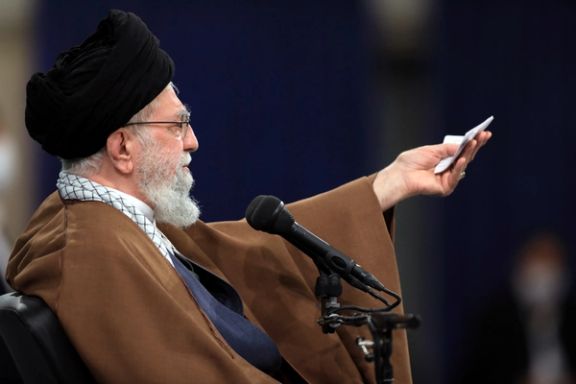
Supreme Leader Ali Khamenei has flatly dismissed the possibility of a referendum and suggested that people lack the faculties required for making decisions about important matters.
After the prayers, Abdolhamid’s congregation took to the streets of Zahedan for the 35th consecutive week and chanted slogans against the regime. Residents have been protesting every Friday since September 30, when security forces opened fire on civilians, killing nearly 90 protesters. The incident has come to be known as the Bloody Friday of Zahedan.
Sunnis constitute at least 10% of Iran's 88 million population and Zahedan, where thousands attend Abdolhamid’s Friday prayers every week is one of the few Sunni-majority cities in predominantly Shiite Iran.
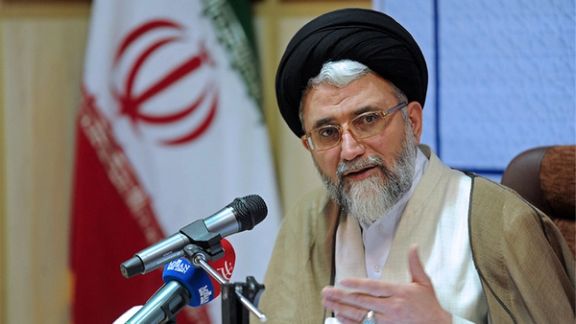
The enemy pursues regime change in Iran; Intelligence Minister Esmail Khatib told a gathering of Iranian diplomats in Tehran on Friday.
Islamic Republic official offer refer to the United States and sometimes to its allies as ‘the enemy’.
“The enemy is definitely after regime change and will not relinquish that goal. That regime change is aimed at altering the nature and essence of the Islamic Republic,” Khatib said.
The Iranian regime has blamed months of protests as a plot by foreigners and even insists that the Woman, Life, Freedom movement is a ploy by enemies to ideologically defeat the clerical political system.
Officials and senior clerics have made the issue of forced hijab a political red line and insist that if they retreat and allow women freedom in their attire, the foundations of the regime will crumble.
Ayatollah Ahmad Alamolhoda, a firebrand religious hardliner, in a speech on Friday echoed Khatib’s remarks, saying that the “enemy” encourages women to unveil because it wants to weaken and put an end to clerical rule in Iran.
Alamolhoda, a staunch supporter of Supreme Leader Ali Khamenei is the father-in-law of President Ebrahim Raisi.
Khatib also claimed that the hardliner government of president Raisi has had foreign policy success and added, “The foreign ministry will have a busy year this year.”
Iran re-established diplomatic relations with Saudi Arabia in March, but is still under Western, particularly US sanctions for persisting to expand its nuclear program.